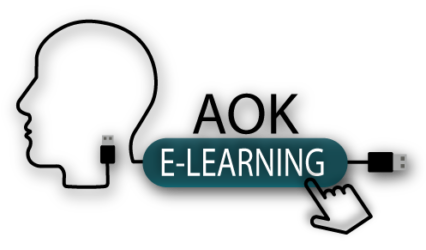AOK Basic Skills Project (a personal retirement project, not an organization)
Portland, Maine
E: kirkjohnb5@gmail.com
W: www.aokbasicskills.gratis
2021-11-20
https://sustainabledevelopment.un.org/contact/
United Nations Headquarters
Sustainable Development Goals Office
405 East 42nd Street
New York, NY, 10017, USA.
Re: How UN World Goals’ 4 – Quality Education – could provide an international beachhead website for the disadvantaged
Hello UN Sustainable Development Goal 4:
Today over half the world has access to the Internet, but many don’t know where to look for help with basic life skills or academic questions. Not only are they unaware of some of the study skills at their disposal for answering their questions, but they also do not have a good idea about how to use a search engine. Moreover, the search engines often don’t help by offering a good index or table of contents for different topics.
The AOK Basic Skills Project would like to propose that the UN World Goals 4: Quality Education offers an international beachhead website that teaches the process and content skills for doing the above. This could help students in kindergarten through twelfth grade, as well as those in adult basic education.
The following is a list of 10 ideas to help achieve this.
Ideas for constructing an international beachhead website that could assist in fundamental grade K-12 and adult basic education learning
- The project managers could begin with determining the basic educational objectives for preschool to grade 12 and adult basic education (ABE) by borrowing from objectives already written in developed countries and the countries for which they are writing. The site would be available in the different languages used in the UN.
- It could have educational curricula that are both supplementary and supportive to those which are normally studied in schools throughout the world.
- The project managers would write the objectives in language that is easy to understand for the parents and students and have sufficient examples to illustrate them.
- Then they could write short, user-friendly parent/student learning manuals from the preschool to the grade 12 levels with productive strategies and techniques on how to study and how to improve reading comprehension, math, writing and other skills. The manuals would provide strategies and techniques to strengthen “independent e-learning”. They could also offer exercises with answers for practice.
- Then they could contact the owners of good educational websites for permission to list their Internet materials to teach some of the educational objectives.
- After, they would annotate the websites, index the chosen exercises, and post them on the website for everyone to use. The learning material would need to be translated and checked for correctness for the users.
- Software for adjusting reading difficulty levels which is free for individuals today could be made available for doing different learning activities. It could be used to adjust the difficulty of the exercises for various age and ability groups.
- It could encourage the use of study guides/skills such as those described in http://www.studygs.net and https://www.wikihow.com/Improve-Your-Study-Skills.
- The website could provide quizzes with answer keys and graphs so that the parents and students could plot their level of performance for different subject areas. This could prove to be a motivating force for student progress.
- The website could help students catch up, stay even with, or to or get ahead of their class.
Two examples of historically productive, independent systems for learning that relate to the concept of an international beachhead website
- The Boy Scouts: the success and motivation of independent learning with clearly written educational objectives was successfully used.
In 1908 Robert Baden-Powell founded the Boy Scouts and recruited experts to set up hierarchies of learning objectives for different related areas. The spirit of independent learning with the guidance of experts was instilled in the boys, and badges were earned to note success.
- The European Language Portfolio (ELP): in the EU, the long-term goal for foreign language teaching is autonomy using refined personal learning styles to learn the easy-to-understand language objectives of the CEFR.
In 2000, the EU began a system for language learning driven by the learning systems of the European Language Portfolio (ELP). With the help of their teachers, the learners experiment with different learning strategies and techniques and decide what works best for them.
They use the clear and easy to language objectives of the Common European Framework of Reference for Languages: Learning, Teaching, Assessment (CEFR). The CEFR has six levels of ability for a language with five basic skills for each. Each skill at each of the six levels has clearly defined learning objectives that should be mostly completed before continuing to the next level. The long-term objective of the ELP is autonomous language learners.
The use of annotated lists of websites for nonprofit, educational and personal use by national and international organizations
From the list below, it would appear that Global Goals would be able to annotate, list and possibly index educational websites with the permission of the owners. Possibly, some of the owners would be honored to have the privilege to make their materials available and they could advertise the fact that they were chosen by World Goals to raise the number of people using their sites.
If there are copyright concerns about the above, the following are examples of several different entities annotating and listing ESL websites for study:
- For ten years the New York Public Library has offered an annotated list of English language learning websites: https://www.nypl.org/blog/2012/11/28/11-great-free-websites-practice-english.=
- The US Embassy in Mexico offers a number of free ESL websites to help people study: English: https://mx.usembassy.gov/wp-content/uploads/sites/25/2019-AE-student-resources-electronic.pdf
- About five years ago, the UN offered a website with a list of ESL websites for secondary level students and older.
- As a further example, the European Language Portfolio (ELP) of the Council of Europe and North America’s Linguafolio from the National Council of State Supervisors for Languages have made their information freely available on the Internet for non-profit, educational use.
Conclusion
The UN is working to promote advanced efforts in support of Goal 4, Quality Education, such as digital education thru https://profuturo.education/en/. The international beachhead website proposed above could provide supplementary educational curricula and involves a simpler but still important digital effort.
If the proposed site can access translation technology, independent e-learning training, and enough free educational websites, there would be ample materials available to form a significant curricula that could serve in many disadvantaged countries. It could also help to temporarily replace a teacher in the world pandemic.
Sincerely,
John B. Kirk, Director
E: kirkjohnb5@gmail.com
About the writer:
John Kirk is semi-retired ESOL teacher over 65 who lived in Ecuador for over 10 years before recently relocating to Portland, Maine in the U.S. He is the director of AOK, a charitable educational effort that was connected to his English school in Quito. AOK is his personal retirement project, not an organization.
To learn more about the details of his program, please refer to his website W: www.aokbasicskills.gratis, where you can read about the 20 life skill workshops that he’s offering. The theme of the presentations is “How you can use the Internet to improve your knowledge of important basic and diet related skills without cost”. John holds degrees in MATESL, 1992 & M.S. Ed in Reading Education K-12, 1976.

